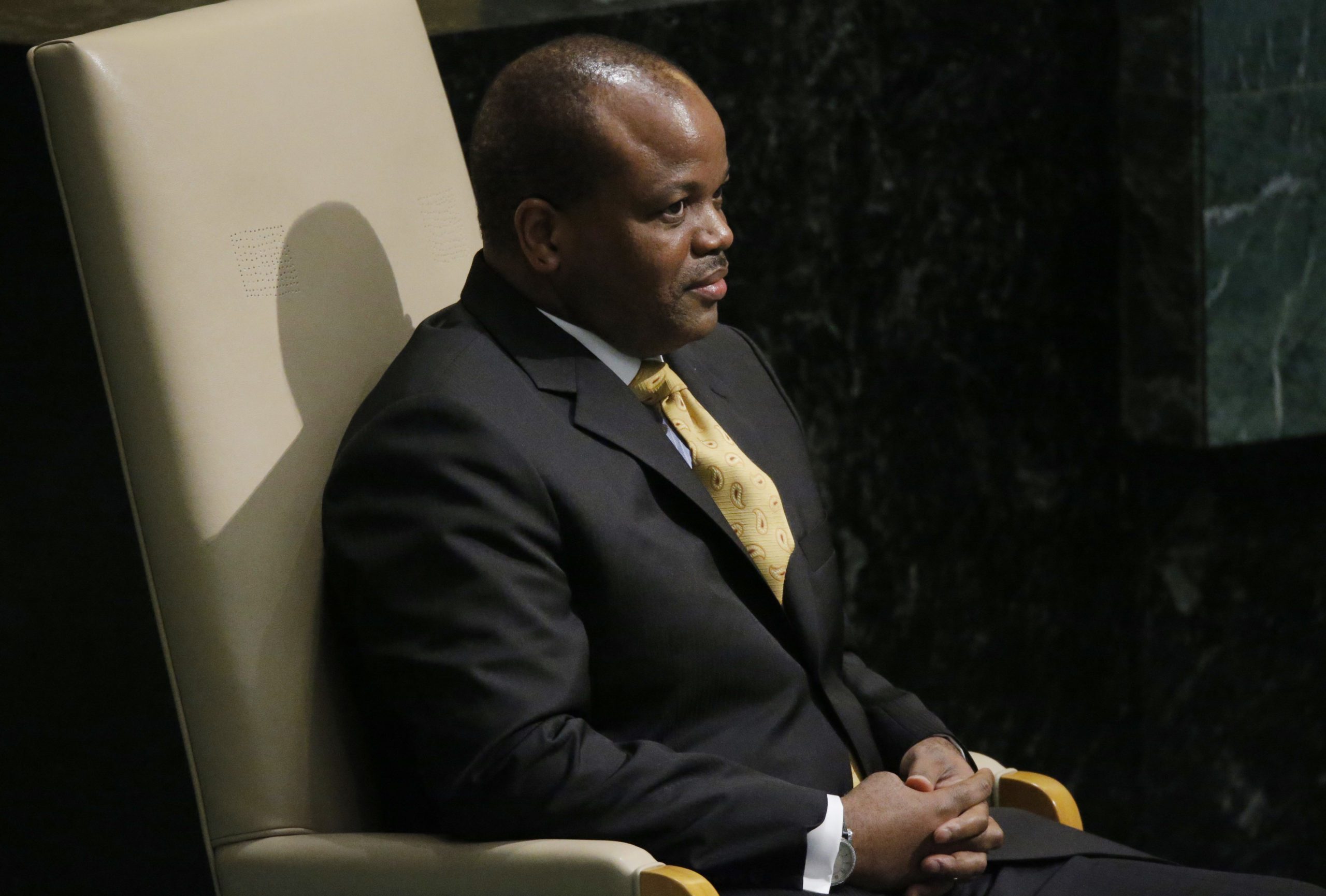
Eswatini citizens protest for democracy
On Tuesday, June 29, SABC News reported that King Mswati III had fled Eswatini for South Africa, amid protests for democracy throughout the country. However, as of this writing, the location of King Mswati III of Eswatini remains unclear, as the government denies that the king has left the country: Following the allegations, the government of Eswatini tweeted: “His Majesty King Mswati III is in the country and continues to lead in working with the government to advance the Kingdom’s goals.”
The ongoing pro-democracy protests started in May following the death of law student Thabani Nkomonye allegedly at the hands of the police. Protesters are demanding democratic reforms and accuse the king of repression. In Mazini, the country’s largest city, there have been reports of protesters barricading roads and setting fires at businesses owned or linked to the royal family. In response, on Tuesday, the government of Eswatini imposed a dusk-to-dawn curfew. The military and police were also deployed, which resulted in violent clashes between authorities and protesters. According to Amnesty International, political activism has been consistently suppressed in the Kingdom of Eswatini—the last absolute monarchy on the African continent—due to repressive laws in the country. These laws include the 1938 Sedition and Subversive Activities Act (SSA Act) and 2008 Suppression of Terrorism Act (STA). Political parties were banned in 1973. Moreover, the current status of political parties is unclear under the 2006 constitution.
The controversial King Mswati III has been in power since 1986, and many Africa experts have criticized him in the past for his extravagant lifestyle. See, for example, former AGI Director Mwangi S. Kimenyi’s 2012 commentary, “The Human Development Cost of the King of Swaziland’s Lifestyle and his ‘Bevy’ of Wives.”
Related Content
Rwanda receives EU funding to bolster vaccine production capacity
On Thursday, Rwanda and the European Union (EU) signed a $3.6 million deal to assist the East African country in upgrading its laboratory capacity, acquiring modern laboratory equipment, and attracting investors to manufacture mRNA COVID-19 vaccines. The deal also earmarks funding to bolster the Rwanda Food and Drug Administration’s quality control capacity for medical products, specifically enabling the country’s medical regulator to qualify for World Health Organization (WHO) certification. The WHO certification, a necessary qualification for producing vaccines, will also build investor confidence in Rwanda’s manufacturing and regulatory capacity. The Rwanda-EU deal follows a joint EU-G-20 Global Health Summit initiative to allocate $1.1 billion in funding for African vaccine manufacturing capacity, as well as improvements in health technology and vaccine access.
In other Rwanda news, on Thursday, the country’s legislature legalized the use of medical cannabis. The new ministerial order outlines the legal criterion for growing, processing, importing, exporting, researching, and using cannabis for medical purposes. The Rwandan government anticipates the new high-value agriculture and agro-processing sector will generate substantial employment opportunities and export revenue. The Africa Regional Hemp and Cannabis Report in 2018 valued Africa’s cannabis market at $37.8 billion and estimates that the continent accounts for 11 percent of the world’s legal cannabis market. Recreational consumption of the drug remains illegal.
Nigeria passes oil-industry reform bill, and South Korea signs energy agreement with AfDB
On Thursday, July 1, the Nigerian Senate passed an oil-industry reform bill aimed at overhauling nearly every aspect of oil and gas production in the country. The bill has now passed both chambers but still awaits being signed into law by President Muhammadu Buhari.
The Petroleum Industry Bill (PIB) has been under debate for nearly two decades and, according to the Senate president’s spokesman, is a “landmark feat,” meant to provide new fiscal incentives, as well as simplify taxes and royalties for oil companies working in Nigeria. The PIB also aims to help local underdeveloped communities dealing with environmental damage from oil production by allotting communities hosting an oil facility 3 percent of the facility’s operating budget. A report by Financial Derivatives Company Limited argues that this bill can save Nigeria over $15 billion annually as it might again attract past potential investors that instead have approached other countries.
In other energy news, on Tuesday, the Korean Ministry of Economy and Finance and the Export-Import Bank of Korea signed a $600 million agreement with the African Development Bank to co-finance various energy projects throughout Africa. The agreement was arranged through the Korea-Africa Energy Investment Framework pact and will direct funding toward the generation, transmission, and distribution of renewable energy. Specific projects within the agreement focus on deploying off-grid, mini-grid, and solar home systems in an effort to accelerate rural electrification. The Korean Ministry of Economy and Finance stated that the agreement “is expected to help African countries transition to green energy while simultaneously improving access to energy.”
Meanwhile, as Ghana’s capital Accra battles extensive plastic pollution, a plastic manufacturing firm called Nelplast has begun building homes with bricks made out of plastic. Since their debut in 2019, plastic bricks serve as a more durable and affordable alternative to cement. The company aims to utilize discarded plastic—particularly plastic bags, which were blamed for causing a flood by clogging the city’s storm drains in 2015. According to Nelson Boateng, CEO of Nelplast, the new prototype house built from plastic can address Ghana’s housing deficit, allowing low-income earners to have affordable housing. Notably, the effort also provides employment opportunities for women: About 98 percent of Nelplast’s employees are women.

